Copyright © 2026 Tauá Turismo. All rights reserved.
Created by By Simplai
Copyright © 2026 Tauá Turismo. All rights reserved.
By Simplai
Discover the majesty of the Rio Negro, the largest tributary of the Amazon River and the seventh-largest river in the world by water volume. Originating in Colombia, it stretches for 1,700 km, of which 720 km are navigable from Manaus to São Gabriel da Cachoeira. The unique black and acidic water of the Rio Negro reduces insect proliferation, offering a more comfortable experience.
Sail through the fascinating archipelagos of Mariuá, with around 700 islands, and Anavilhanas, the most famous, with 400 islands. Experience a unique and safe adventure with Tauá Turismo.
This 3,502 km² territory was declared an ecological station in 1981 by the Ministry of the Environment. According to Brazilian law, an ecological station can only be visited and traversed for scientific research purposes. This was an oddity, considering that river transport is required to cross the archipelago to serve the upstream communities: Barcelos, Santa Isabel, and São Gabriel, the most important ones.
In 2008, the archipelago finally became a national park open to tourism. The park is classified as a UNESCO World Heritage Site and is part of the Ramsar Convention – protecting the planet’s wetlands.
The Anavilhanas National Park holds great symbolic importance for the Northern region, featuring incredible landscapes with diverse formations. At sunset, the calm waters of the Rio Negro create stunning displays, turning into a mirror of the sky. Beyond its natural beauty, the fauna and flora are unique, with a little-studied factor: the vegetation on the left bank is strongly influenced by the sediments and possible seed dispersal from the Rio Branco, a tributary on the left bank of the Rio Negro. On the right bank, the vegetation is more similar to that of the terra firme.
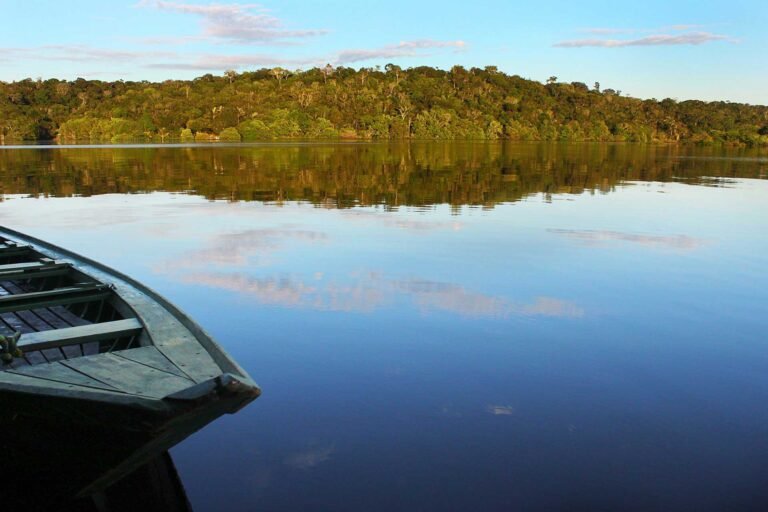
Jaú National Park, with an area of 22,720 km², is one of the largest parks in Latin America.
Established in 1980 to protect the length of the Jaú River, it was inscribed as a UNESCO Natural World Heritage Site in 2000.
Explore its rapids, waterfalls, and incredible biodiversity in a fully immersive experience in the Amazon rainforest.
The main tributary of the Rio Negro, the Rio Branco, is known for its white and muddy waters, which provide refuge for various bird and animal species.
During the dry season, the sandbanks create a perfect setting for photo safaris and the practice of artisanal fishing, offering a rich and authentic cultural experience.
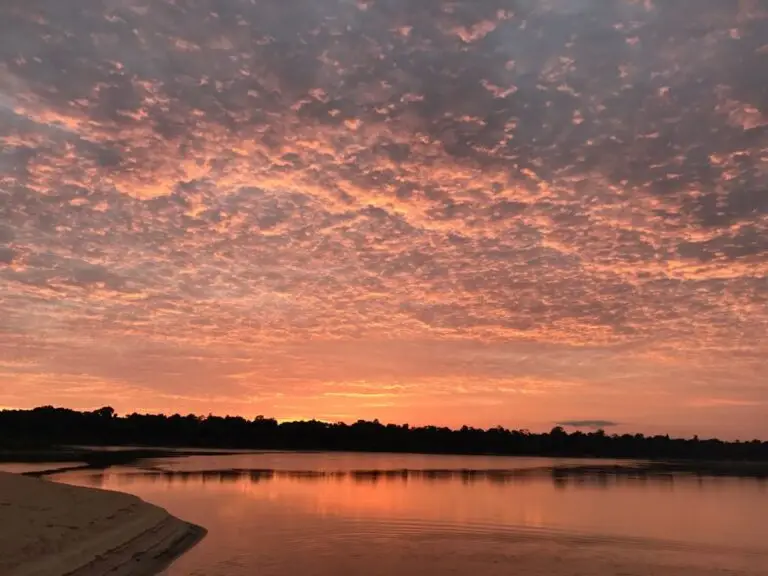
The Rio Jauaperi runs approximately 300 km before flowing into the Rio Negro, passing through tropical forests, igapós, and várzeas that host a vast diversity of fauna and flora.
Sail along this river, whose name means “river of the alligators,” and discover fascinating landscapes rich in biodiversity.
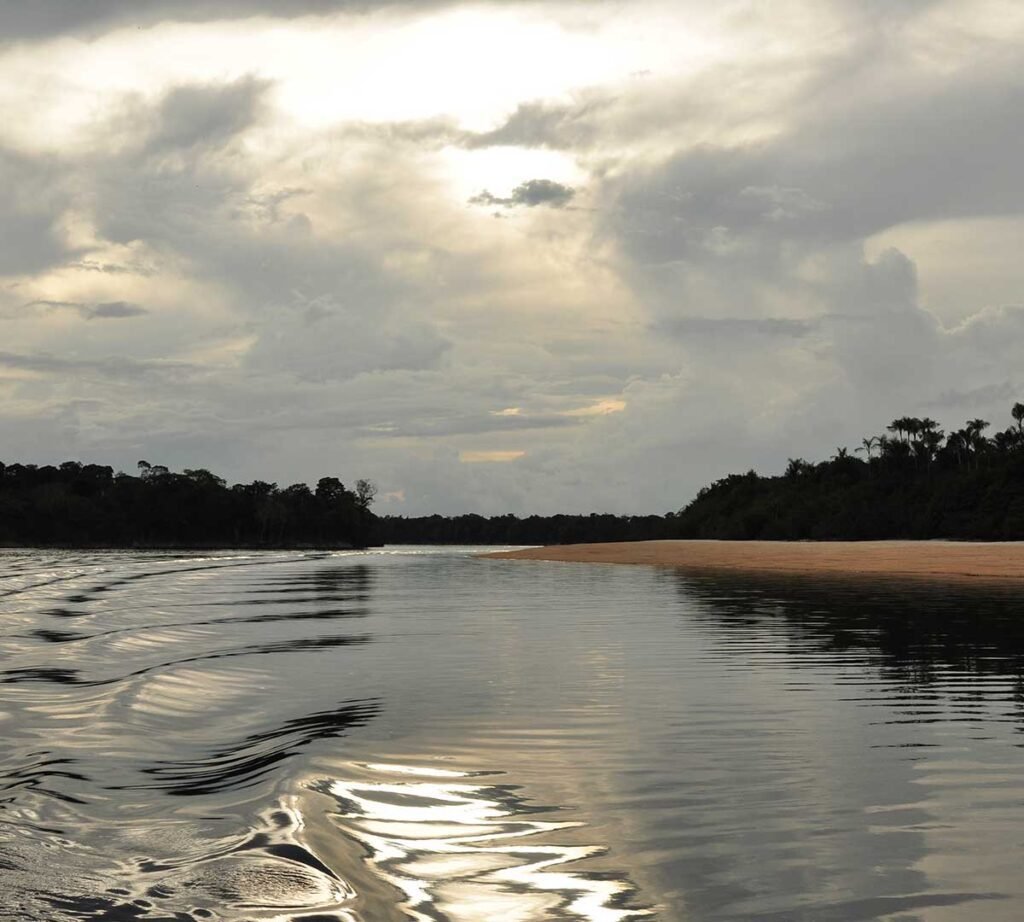
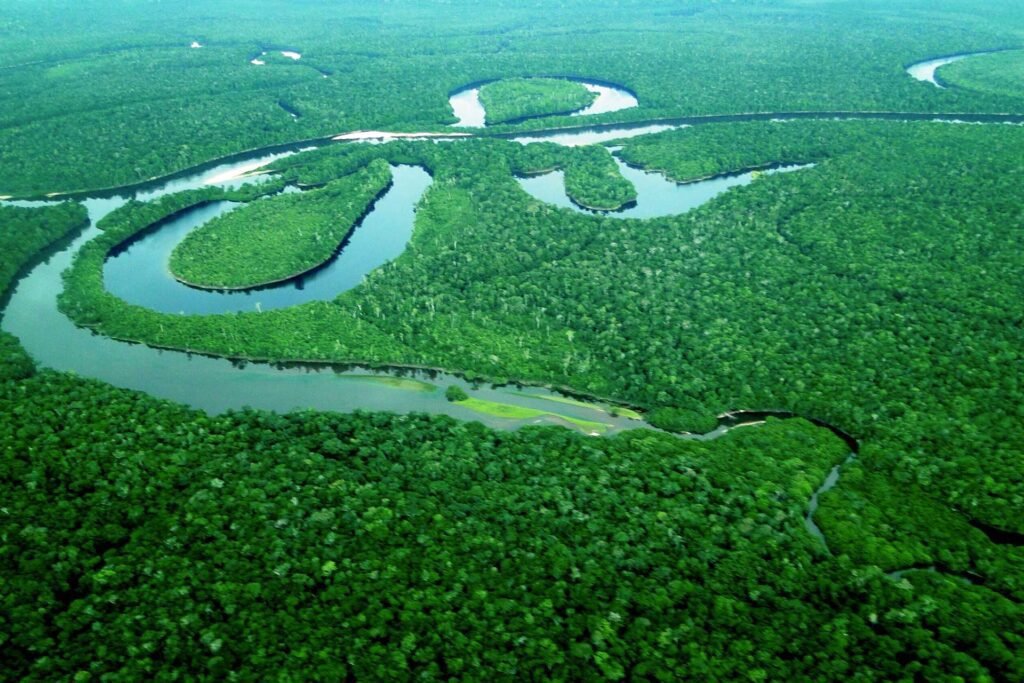
Stretching 400 km, the Rio Unini has a rich network of springs and lakes.
Its acidic waters form meanders and floodplains that host a variety of aquatic environments.
Explore lakes, igarapés, and flooded forests on an unforgettable excursion with Tauá Turismo.
Created to protect the livelihoods and culture of traditional populations, these reserves allow public visitation in a way that is compatible with local interests.
Experience sustainability and local cultural traditions on a tour that values both the ecosystem and the local economy.
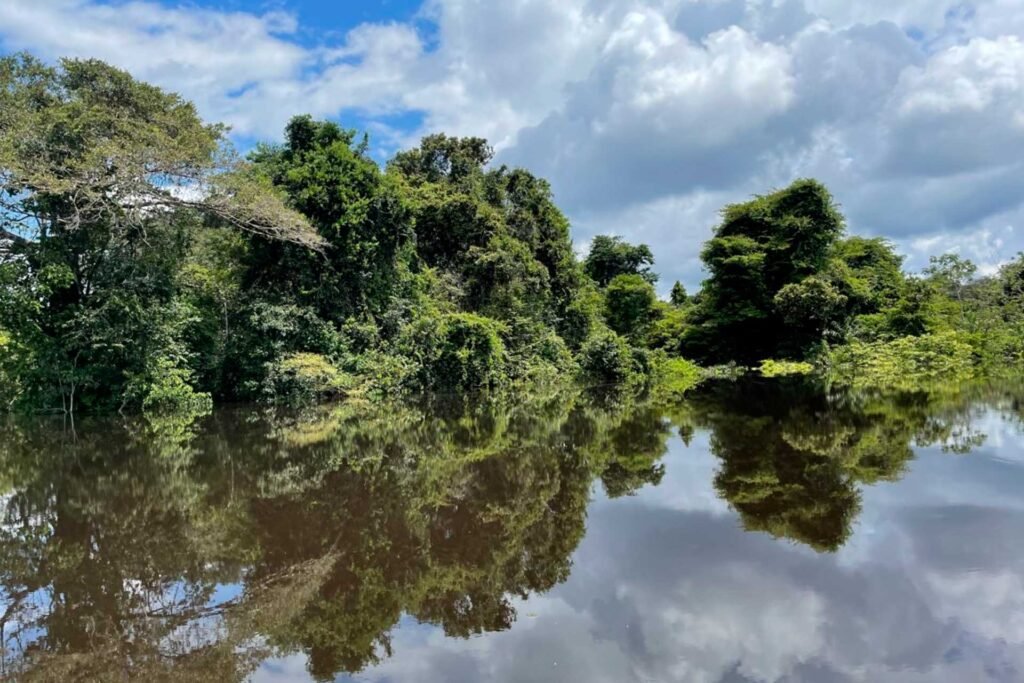
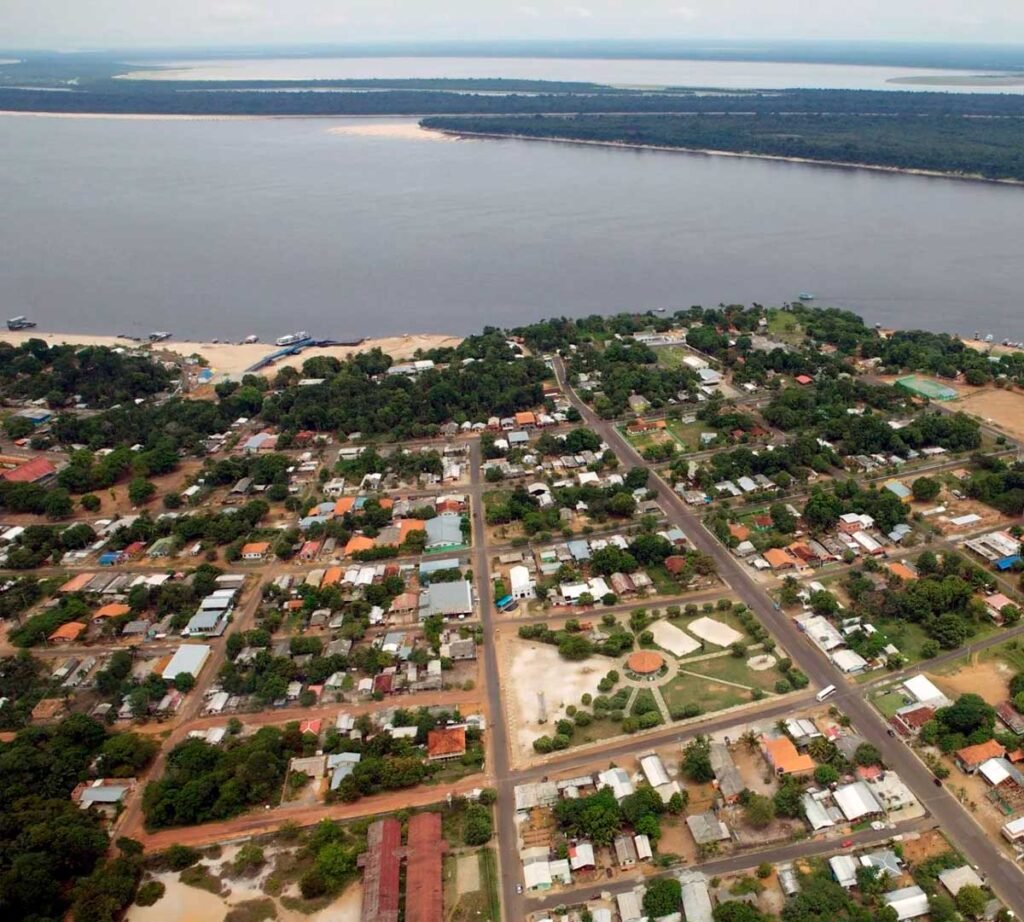
Founded in 1955, Novo Airão is accessible by land or river and serves as a gateway to the Anavilhanas and Jaú National Parks.
Explore the history, culture, and ecotourism of this region, including the abandoned town of Airão Velho, an important trade center during the rubber boom.
The communities scattered along the basin of the lower Rio Negro are diverse, ranging from 4 to 80 families. Those near Manaus and Novo Airão rely on community-based tourism as an important source of income. For the more distant communities, economic survival depends primarily on social assistance and services provided by municipal and state administrations.
Among the greatest challenges faced by local populations are access to healthcare and education, due to the vast distances to urban centers and the high travel costs.
Most communities survive through fishing, hunting, small-scale agriculture (such as growing bananas, manioc, and some fruits), and the collection of wild fruits like Brazil nuts. Significant improvements in communication in these remote regions have brought positive impacts but also introduced a sense of immediacy and consumerism, especially among younger generations.
The inhabitants of these communities, known as caboclos—a term of Tupi origin that refers to the mix of indigenous and white ancestry—preserve extensive knowledge of the therapeutic virtues of plants, the lives of wildlife, and many fascinating stories to share.
These communities represent the rich culture and resilience of the traditional populations of the Amazon, keeping the connection with nature and their ancient traditions alive.
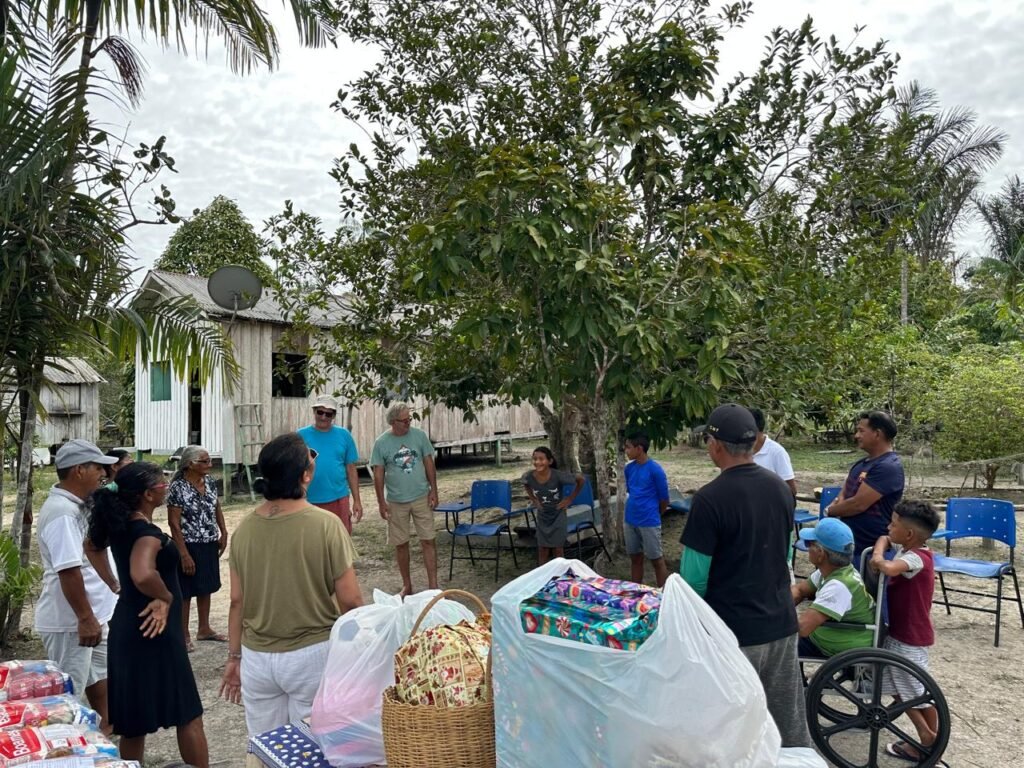
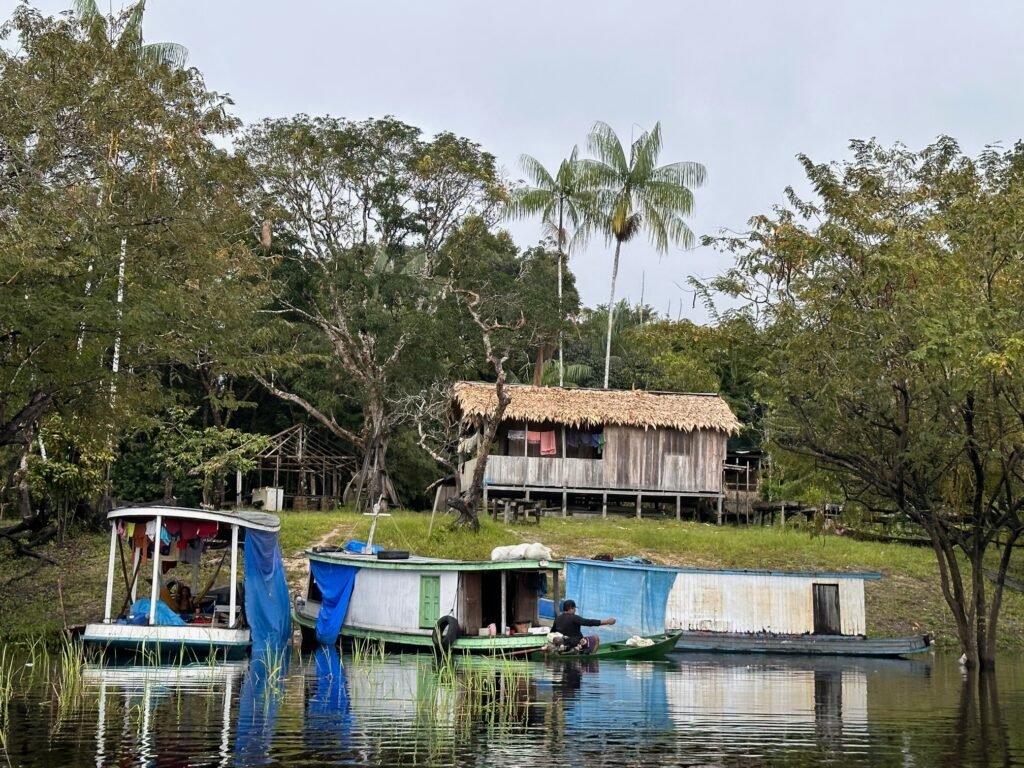
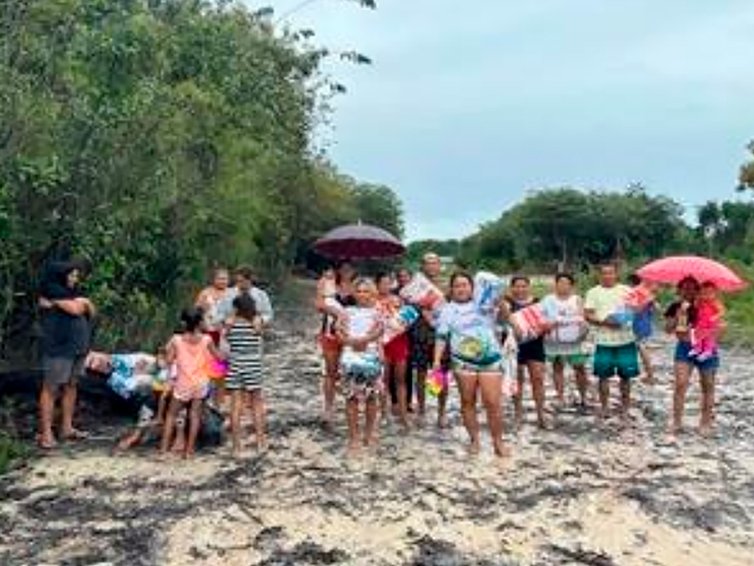
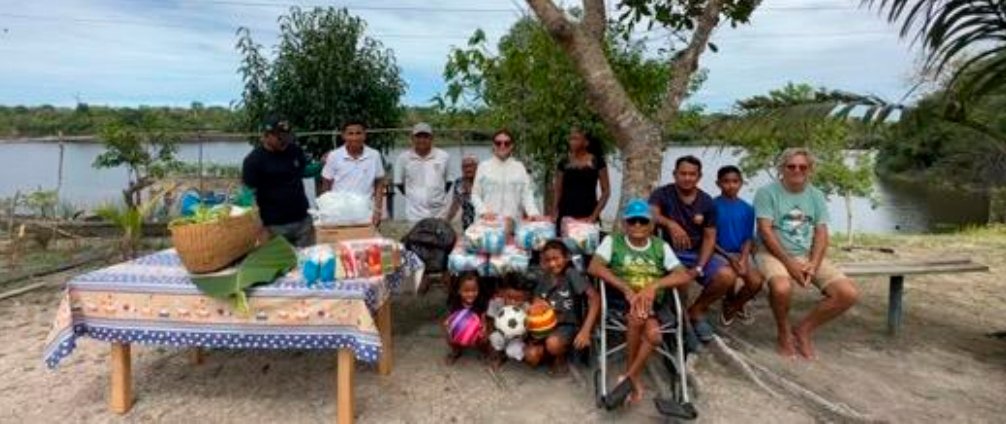
The creation of this institution dates back to the year 2000. This project was initially funded by a Swiss NGO, the Association Ailleurs Aussi, with the goal of generating income for families through the production of artisanal and useful items made from leftover wood recovered from shipyards in Novo Airão.
In 2005, a new complementary project was born: an environmental education program for children and teenagers. Today, these activities continue and have expanded, particularly with the construction of schools in the communities.
The founders and key developers of this institution are your hosts: Marta and Jean-Daniel. The visionary and founder is Marta’s father, Miguel Rocha da Silva. Today, the institution is financially supported by local tourism companies, and various educational and vocational training programs are funded by private and corporate donations from Brazil.
A guided visit to the institution’s headquarters offers a deeper understanding of the economic and social challenges of the region.
It is within this vast labyrinth of water, forest, and small communities that Tauá Tour takes you, allowing you to discover an extraordinary universe with its beauties, mysteries, strengths, and weaknesses.
Tauá Turismo: Exclusive ecotourism in the Amazon, navigating the Negro and Solimões rivers. We offer authentic tours for small groups, focusing on nature, culture, and sustainability.
Stay updated on our news and promotions!